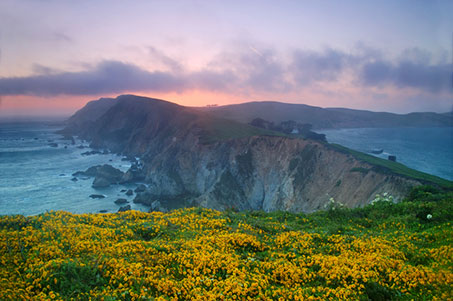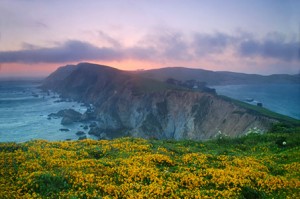Politics, the Environment, and the Gospel in the US – by Mark H. Rich
See Anne Marie Dalton’s Essay, “The Environment and Politics”
See Dan Turk’s Essay, “Politics and the Environment: Reflections on the United States vs. Madagascar”
The illness as American politics and the natural environment relate
Let us begin with discussing politics. Two prominent American commentators summarize the current state of American political debates as follows:
Ariana Huffington: “On issue after issue — education, our crumbling infrastructure, the rising costs of health care, the deficit, the steady decline of the middle class, foreign policy (where the two parties marched arm in arm into invading a country that did not after all have WMD or pose a threat to our national security) — our current two-party system has failed us.
“It has ossified to the point where it can only deliver short-term fixes. It has led to entrenched thinking, complacency, and the deification of conventional wisdom — all conditions that have made it harder and harder to challenge a broken status quo.”
Thomas Friedman: “The best our current two parties can produce today — in the wake of the worst existential crisis in our economy and environment in a century — is suboptimal, even when one party had a huge majority. Suboptimal is O.K. for ordinary times, but these are not ordinary times… Pretty good is not even close to good enough today.”
Both of these thinkers are spot on in their diagnosis of the current American political and cultural crisis. They also both have an optimism for the future that I don’t share. Huffington thinks that third party politics will get us there, and Friedman thinks that smarter thinking will get us there. I see little evidence of either in any effective degree, so I’m not optimistic about these becoming effective strategies. The Christian teaching about original sin reminds us that these problems are far more intractable than secular thinkers tend to imagine. So long as the American people and establishment continue in their thrall to Mammon, the chances of change are slim.
Furthermore, as John Mearsheimer abundantly demonstrates, we continue to live in a world political system dominated by self-interested great powers, a ‘system’ which overall is anarchic. (It is freakish to use the word ‘system’ for something inherently anarchic and morally hollow.) There is no overarching world government (of the human type), nor any other kind of political order, let alone moral order. Corporate capitalism is the economic order, and increasingly it calls the tune for the politicians.
Environment as resource base
I go into all this fun good news by way of approaching the matter of our political and economic relationship to the environment. To the present ‘system’ the environment is an array of resources for the system and a sink for its effluent. It has no inherent value, which is why it is so important to the ‘system’ that both the resources and the effluence be literally dirt-cheap. The environment is certainly neither God’s creation nor humanity’s home; it is merely the environment – that which is around us. Such concepts as creation and home are meaningless to the ‘system’, because they honor the inherent value and meaning of the earth. This honor and meaning are spiritual and therefore non-economic.
We must also insist that this problem is not new. The degree of destruction we humans are now bringing to the planet and the threat it presents to the planet’s future are indeed unprecedented, but the kind of problem it presents is not. Jared Diamond is the go-to reference here, but so is the New Testament. The coming “wrath” to which nearly all the NT writers readily refer, assuming that it was obvious to their first-century readers, witnesses poignantly and powerfully to the civilizational and environmental breakdown that first Jerusalem and then the whole Roman Empire was creating for itself. And it came to pass…
To those who know me it will come as no surprise that I say that the gospel is the antidote to this civilizational sickness unto death. Like all spiritual traditions worth their salt, the gospel insists that the earth isn’t merely our plaything, our resource, and our dump. “The earth is the Lord’s and the fullness thereof” restores a positive value to the earth and all its fullnesses that the ‘system’ vitiates.
The political and economic morality of the Gospel
More to the point, though, are the politics, morality, and economics of the gospel. The common fallacy about religion is that it is supposed to creep about in the corners of society and, above all, stay away from politics. The truth is that the gospel is the politics of faith, hope, and love rather than the politics of fear, greed, and hate that the world trains us in. I know that it sounds Pollyannaish at best and insane at worst to talk about faith, hope, and love as politics. But these are the politics of God rather than of the ‘system’, and they don’t have to sound sensible in worldly terms.
The morality of the gospel is exemplified in Jesus’ challenge: “Go and learn what this means – ‘I desire mercy and not sacrifice’” (Mt 9:13). Slow-motion sacrifice is exactly what we are doing to the planet. It is weirdly telling, is it not, that increased meat consumption is one of the key markers of economic and political success in the world’s terms. Yet we know that that one behavior is one of the most ecologically damaging things we humans do.
To care for the earth rather than merely exploiting it (we humans will always exploit it to some degree) is to choose mercy and turn away from sacrifice, to choose morality over profit, to insist that there are greater values whose price cannot be taken.
Finally, the economics of the gospel are exemplified in the feeding of the 5000, in which abundance is creating by sharing – that is, it is the opposite of private profiteering. What matters is that all are fed to satisfaction even though none are made rich. In this way God teaches us that this planet is enough for our needs. It is only our greed that makes this planet insufficient.
The ‘system’ needs the gospel now more than ever. The planet needs the gospel. We need the gospel. For our own sake, for the earth’s sake, for future generations’ sake we need to learn sharing, mercy, faith, hope, and love. These are the future, and it is upon us now. We can’t afford any other politics.
On Wednesday, Anne Marie Dalton, whose research centers on Mongolia, and Dan Turk, writing about Madagascar, join the conversation.
See Anne Marie Dalton’s Essay, “The Environment and Politics”
See Dan Turk’s Essay, “Politics and the Environment: Reflections on the United States vs. Madagascar”



I am now in my 80th. year. and as I see it, The failure to take pride in and jealously guard our individual responsibilities appears to be our most serous weakness. We can quote excerpts from the Roman Empire but who can or will emulate the leadership. Remember the greatest generation? They won WW2. They farmed, they fought the Dust Bowl, they ran the factories, fought disgraceful management by forming unions. They took responsibility for doing what was right. They were well trained. They were trained in a time when the parents ran the home and the teachers ran the classroom. And woe on to you if you crossed either one. I spent 4 years in a one room schoolhouse and the teacher had a short length if hose in the bottom desk drawer. I never had to ask who was in charge. We seem to be so quick to mislabel discipline as abuse that we no longer have any semblance of discipline. We must begin now…In grammar school, strong discipline, The Ten Commandments, The pledge of Allegiance, support two Parent homes. Teach what is needed not what is comfortable. Special ED is reqd. for those that would otherwise be left behind.Please hurry it is getting late….